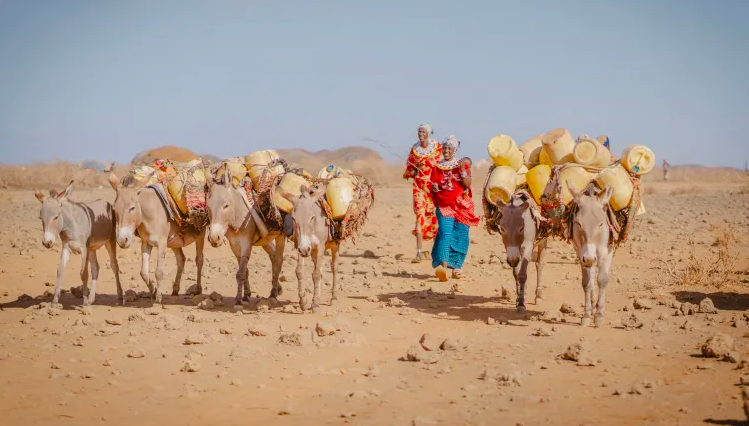In Kenya, Girls Are Sold into Marriage to Stave Off Starvation from Drought

Marsabit, Kenya (LM) As the sun approaches its scorching zenith, Dukano Kelle heads out from the desolate settlement of Kambinye in northern Kenya, urging her family’s reluctant donkey forward with an acacia branch. The oppressive heat drains her energy, and despite not having eaten since the previous morning, Dukano, a 34-year-old mother of five, has no choice but to walk for several hours to the nearest borehole. This journey, however, likely ends in disappointment, as water levels are critically low.
Since being married off by her family at the age of 15, Dukano’s life has revolved around this dispiriting ritual. Her toil reflects the struggles of thousands of women residing in stick-framed nomadic shelters scattered across the arid plains of northern Kenya. Here, an existence already marked by precariousness has devolved into a daily battle for survival.
The ongoing drought, exacerbated by climate change, has made life increasingly difficult. Aid groups report that climate change not only intensifies the severity and frequency of droughts but also deepens inequality in insidious ways. Families facing starvation are often forced to make harrowing decisions, including marrying off their daughters at a young age to secure dowries that can provide temporary relief from hunger.
Local leaders and humanitarian organizations are calling for urgent action to address the underlying issues. “We need to find sustainable solutions to support these communities, rather than forcing them into desperate measures,” said Fatuma Abdi, a representative of a local NGO. “Investing in education and access to resources can help break this cycle of poverty and inequality.”
As the situation continues to deteriorate, the plight of women like Dukano serves as a stark reminder of the intersection between climate change, poverty, and gender inequality in Kenya. Without immediate intervention, the cycle of suffering is likely to persist, leaving many vulnerable families with few options for survival







